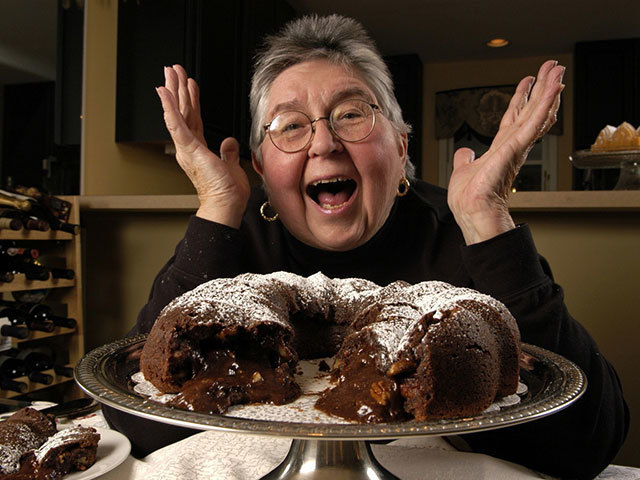
Read this and maybe mum’s cooking and school dinners will never seem the same again.
Cooking is all about chemistry and knowing some facts can help chefs understand why recipes go wrong.
Because cooking is essentially a series of chemical reactions, it is helpful to know some basics.
For example, plunging asparagus (yeach, I hear you say) into boiling water causes the cells to pop and result in a brighter green.
Longer cooking, however, causes the plant’s cell walls to shrink and releases an acid. This turns the asparagus an unappetising shade of school dinner grey.
Maybe you love to cook with Mum and maybe you’ve watched her whip up some disasters? Even the best recipes can sometimes go terribly wrong.
Scientist turned cook Shirley Corriher says science is the key to understanding what goes right and wrong in the kitchen.
“Cooking is chemistry,” says Corriher. “It’s essentially chemical reactions.”
This kind of chemistry happens when you put chopped red cabbage into a hot pan.
Heat breaks down the red anthocyanine pigment, changing it from an acid to alkaline and causing the colour change.
Add some vinegar to increase the acidity, and the cabbage is red again. Baking soda will change it back to blue.
Cooking vegetables like asparagus causes a different kind of reaction when tiny air cells on the surface hit boiling water.
“If we plunge them into boiling water, we pop these cells, and they suddenly become much brighter green,” Corriher says.
Longer cooking is not so good. It causes the plant’s cell walls to shrink and release acid.
“So as it starts gushing out of the cells, and with acid in the water, it turns cooked green vegetables into yucky army drab,” Corriher said.
And that pretty fruit bowl on your counter?
“Literally, overnight you can go from a nice green banana to an overripe banana,” Corriher says.
The culprit here is ethylene gas. Given off by apples and even the bananas themselves, it can ruin your perfect fruit bowl – but put an apple in a paper bag with an unripe avocado, and ethylene gas will work for you overnight.
This is used as a quick way of ripening.
Corriher says understanding a little chemistry can help any cook.
“You may still mess up, but you know why,” she said. “When it works, this kind of chemistry can be downright delicious.”
Recommended for you
